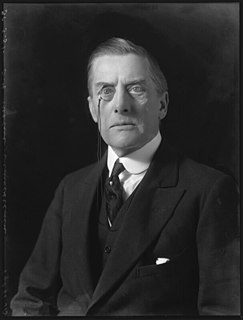A Quote by Alex Nunns
Jeremy Corbyn couldn't have won without Labour changing its leadership election rules in 2014, but which more importantly got rid of the electoral college that had given MPs a third of the say over who leads the party. That's why Diane Abbott came last when she ran for leader in 2010, even though in the absolute number of votes she came third out of five. It's one of those wonderful historical ironies that the change to the rules was a victory for the Labour right, the result of a push back against the unions who had been asserting themselves more forcefully within the party.
Quote Topics
Absolute
Against
Back
Back Again
Been
Came
Change
Changing
College
Diane
Election
Electoral
Electoral College
Even
Five
Given
Got
Had
Historical
Importantly
Jeremy
Labour
Last
Leader
Leadership
Leads
More
Mps
Number
Out
Over
Party
Push
Ran
Result
Rid
Right
Rules
Say
She
Themselves
Third
Those
Though
Unions
Victory
Votes
Which
Why
Within
Without
Wonderful
Related Quotes
The combination of the Liberal and Labour Parties is much stronger than the Liberal Party would be if there were no third Party in existence. Many men who would in that case have voted for us voted on this occasion as the Labour Party told them i.e. for the Liberals. The Labour Party has "come to stay"...the existence of the third Party deprives us of the full benefits of the 'swing of the pendulum', introduces a new element into politics and confronts us with a new difficulty.
Writing a book about Jeremy Corbyn, set out with two objectives. The first was simple: to explain how he became the leader of the Labour Party. I was disappointed - but not at all surprised - at the complete absence of intellectual curiosity on display. The second objective I had to try to capture for posterity the excitement and spirit of the first Corbyn campaign. Those moments when the impossible suddenly becomes possible are so powerful to those who experience them. I think it's politically valuable to relive such moments, to learn the lessons of what went right.
Marla [from Rules Don't Apply] especially, believed that she has a certain set of rules that she had to abide by, in order to be successful in Hollywood. How she acted, how she approached things and even in her relationship with her mother - there were a lot more rules and regulations expected of ambitious women, even before they got into the door.





































